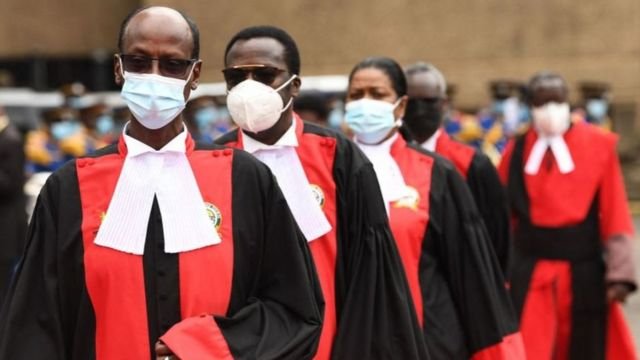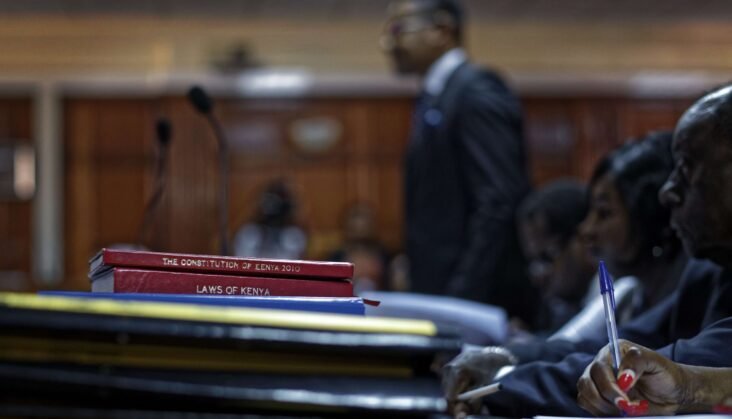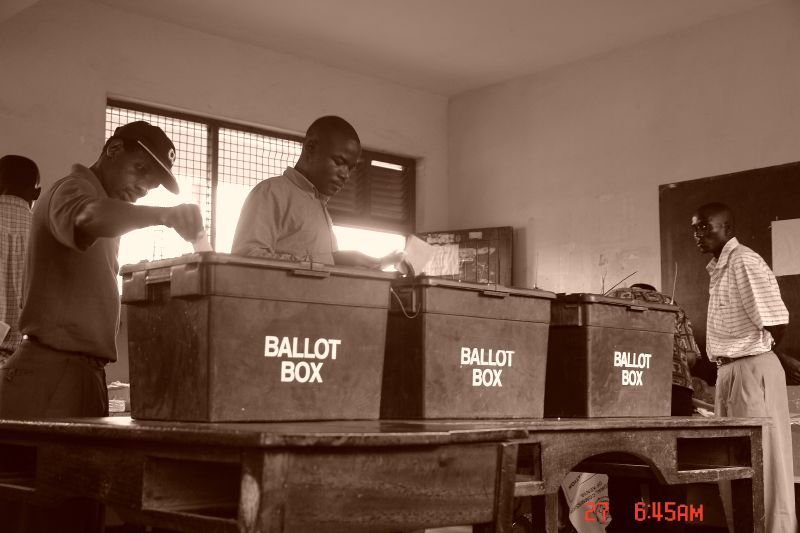
Our Blog
Categories
- Africa
- African Union
- Central Africa
- Citizenship laws
- Competion Law
- Constitutional Court
- Constitutional Law
- Constitutional law
- Disability rights
- East Africa
- Environmental Law
- Governance
- Human Rights
- Immigration Laws
- International Law
- Kenya
- Mining Law
- Nigeria
- North Africa
- Political Rights
- Public Law
- Right to Vote
- SADC Region
- South Africa
- Southern Africa
- Uganda
- West Africa
- Zambia
Rafoneke v Minister of Justice: What about Intersectionality?
In Rafoneke v Minister of Justice and Correctional Services (Rafoneke), the SA Constitutional Court had to consider whether section 24 (2)(b) read with section 115 of the Legal Practice Act 28 of 2014 (LPA) unfairly discriminated against foreign nationals on the basis of citizenship and social origin. Geoffrey Allsop and Ohene Yaw Ampofo-Anti argue that the court did not apply the principle of intersectionality correctly in its finding that these provisions are constitutional.
Reconsidering the Rights and Responsibilities of the Corporate Person
Corporations increasingly enjoy more rights but face fewer consequences for abusing rights. Erika George argues that a new approach is urgently needed and that constitutional courts should be more concerned with the concentrated power of the private sector and protecting the public space for effective policy making and adjudication.
Constitutionalism in the Era of Private Power and the Fourth Industrial Revolution
In the course of digitalisation, economic and other activities are increasingly internationalising and their challenges can thus be less frequently addressed through state constitutions. Although there is no constitutional framework that would allow private power to be effectively constrained at the international level, Johannes Masing argues that a certain uniting basis of constitutionalism across borders may be found in human rights.
Bwanya v Master of the High Court: Right for the Wrong Reasons
Bwanya v Master of the High Court was the first occasion on which the Constitutional Court expressly refused to follow one of its previous decisions. Joshua Davis considers the basis on which it did so and the implications for the doctrine of precedent, and argues that the judgment was ultimately right for the wrong reasons.
The Parallel Play of Liberty and Subsistence
Amita Dhanda, a plenary speaker at the World Congress of Constitutional Law reflects on the connection between the rights of liberty and subsistence in light of developments in Indian criminal law.
Basic Structure and Tiered Amendment Processes: The Kenyan Supreme Court’s BBI Ruling
Gautam Bhatia considers how the Kenyan Supreme Court’s judgment in the BBI matter reflects the complexity of applying the basic structure doctrine in a tiered amendment context, where the amendment process explicitly carves out a high threshold of public participation.
The BBI Judgment: Of Basic Structure Doctrines and Participatory Constitution-making
Dr Silvia Suteu argues that the BBI saga raises important questions about the interplay between unamendability and participatory constitution-making, and considers the relevance of the participatory nature of the adoption of Kenya’s 2010 Constitution vis-à-vis the acceptance or rejection of unamendability in the BBI case.
Public Participation in Kenya: What is it?
Following the decision of the Kenyan Supreme Court in the matter concerning the BBI Bill, Dr Linda Musumba examines the meaning of “public participation” as required by the Kenyan Constitution.
Prisons in Africa – a death sentence for women’s rights
Women in African prisons endure abuse, violence, endemic overcrowding, inadequate food, and poor hygiene and sanitation. Sohela Surajpal examines this problem and argues that a feminist movement committed to protecting and empowering the most marginalised among us must look to alternative visions of safety and justice that a divestment from carceral politics might offer us.
Gender Inequality: The Vulnerabilities of Women under the Asylum System
South Africa’s 1998 Refugees Act fails to reflect the country’s constitutional commitment to equality in as far as it entrenches the unequal treatment of women. Shortcomings in refugee protection lead to the treatment of refugee women as minors and smother their autonomous voice in the refugee application process.
Les changements anticonstitutionnels de gouvernement: mode ou contre mode ?
Survenant par la force des armes ou à travers une subtile modification de la constitution, ne conservant qu’une apparence de légalité, ce phénomène est récurrent sur le continent noir et génère de lourdes menaces pour la démocratie et l'état de droit. La fréquence des changements inconstitutionnels ces dernières années nous amène à nous demander s’ils ne se sont pas érigés en une nouvelle mode d’ascension au pouvoir.
Two Rights can make a Wrong: Judges’ Rights to Freedom of Expression and Religion
The right to freedom of conscience, religion, thought, belief, and opinion is guaranteed by the Constitution of the Republic of South Africa, 1996, yet judicial officers have found themselves in predicaments where their religious beliefs led to their judicial propriety being questioned.
The defence and security policy in the Congolese Constitution of 18 February 2006: what about the incumbent?
The unchanging centrality of the state rests on defense and security. These matters should escape the weaknesses of constitutional elasticity. One of the essential functions of the Constitution is to produce stability and durability in the legal framework within which political actors operate.
La politique de défense et de sécurité dans la Constitution congolaise du 18 février 2006 : quid du titulaire ?
La centralité immuable de l’État repose sur la défense et la sécurité. Ces questions devraient échapper aux faiblesses de la plasticité constitutionnelle. L’une des fonctions essentielles de la Constitution est de produire la stabilité et la durabilité du cadre juridique dans lequel les acteurs politiques évoluent.
Mandatory Vaccination against Covid-19: Implications for the South African Workplace
Covid-19’s potentially devastating impact motivated unrivalled global efforts to develop vaccines, which the World Health Organization (WHO) identified as the most effective protection against the disease. Although largely viewed positively, there has been notable mistrust and hesitancy due to concerns about health-related risks associated with Covid-19 vaccines. This has raised questions in the employment context as some employers have quickly moved towards making vaccines mandatory.
- BBI judgment
- Children's rights
- Climate Change
- Constitutional Law
- Constitutional reform
- Democracy
- Election series
- Elections
- Environmental Justice
- Equality
- Ghana
- Human Rights
- International Law
- Judicial independence
- Kenya
- LGBTQ+ Rights
- Migrants
- Migration
- Namibia
- Nigeria
- Political Rights
- Public participation
- Refugee and migration series
- Refugees
- South Africa
- South African Constitution
- Women in Africa
- Women's Month
- Women's rights
- World Congress
Submissions
We welcome unsolicited submissions covering current legal developments in constitutional law, fundamental rights law, public law, international law and related fields.
















